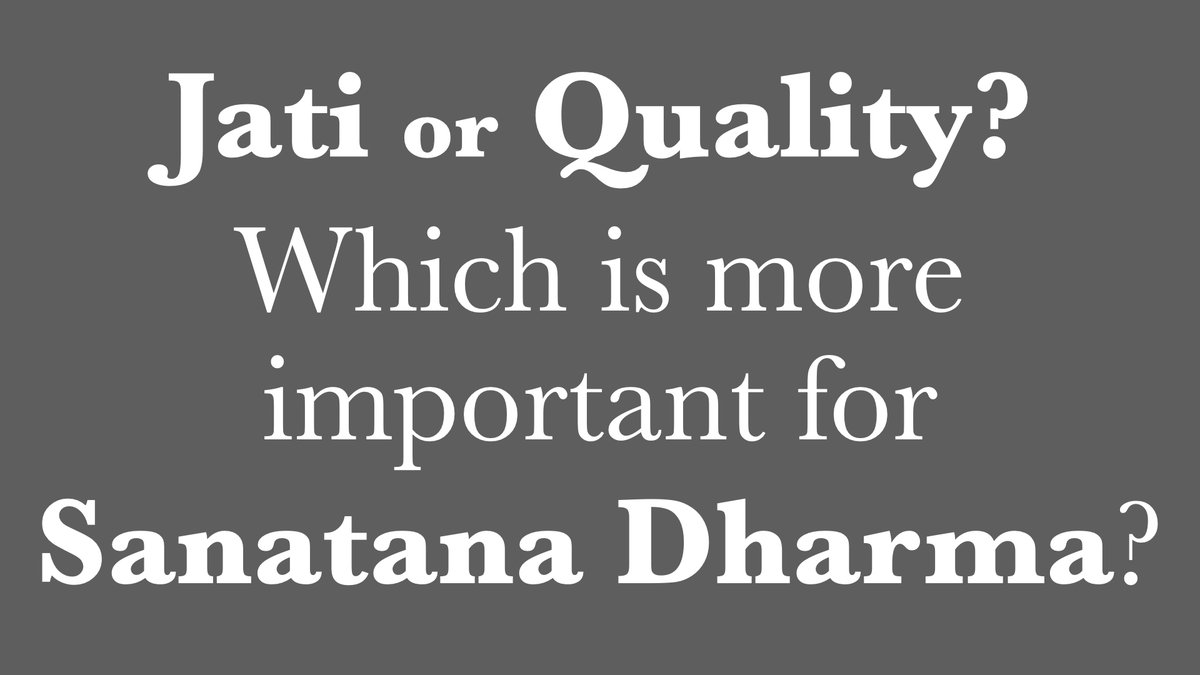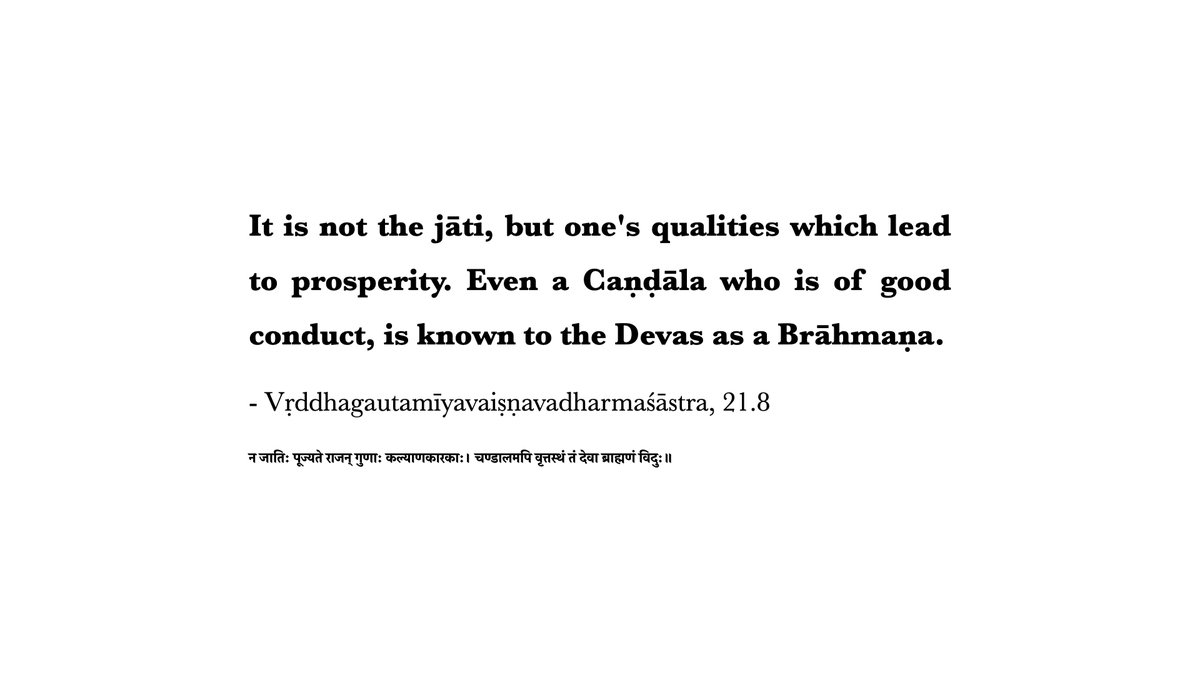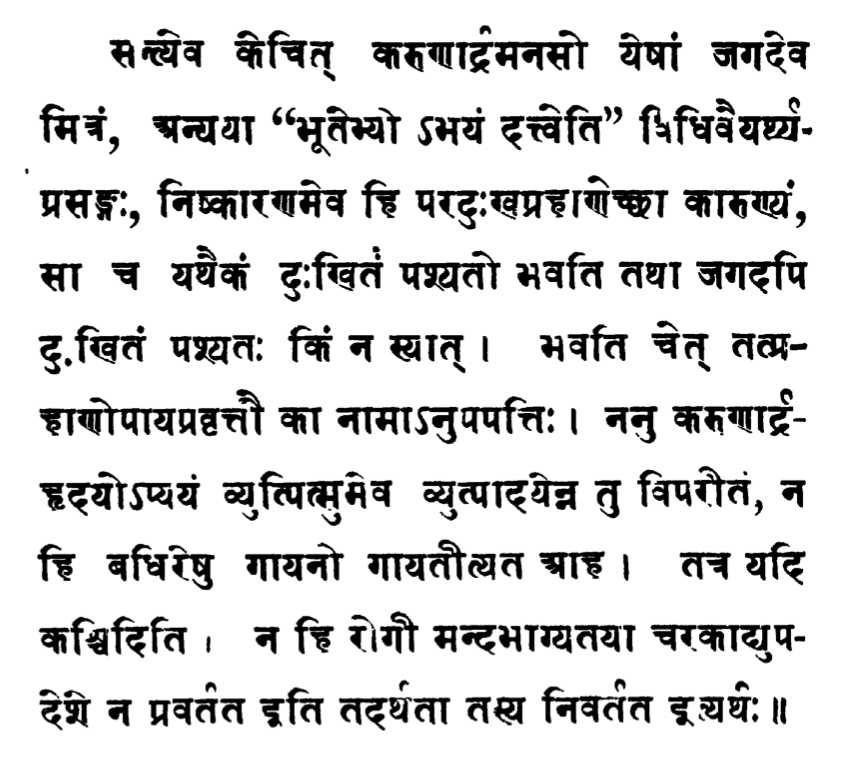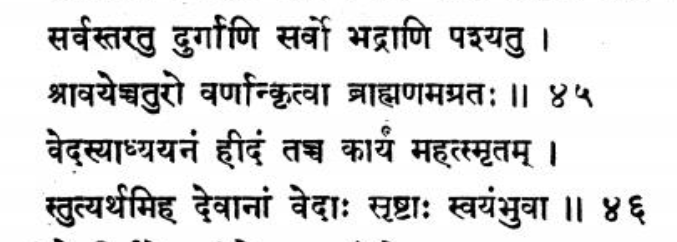
PhD in Sanskrit. Writer. Author. Dharmashastra Consultant.
Sign up to my monthly newsletter: https://t.co/f0BJByLR5B
How to get URL link on X (Twitter) App


 From the Vriddhagautamiya-vaishnava-dharmashastra.
From the Vriddhagautamiya-vaishnava-dharmashastra.

 "na vai tadvidma yadi brāhmaṇā vā smo'brāhmaṇā vā yadi tasya vā ṛṣeḥ 3smo'nyasya vā..."
"na vai tadvidma yadi brāhmaṇā vā smo'brāhmaṇā vā yadi tasya vā ṛṣeḥ 3smo'nyasya vā..."

 These verses appear in a chapter of Skanda Purāṇa, in which the procedure of tīrtha-yātrā to Somanātha has been mentioned.
These verses appear in a chapter of Skanda Purāṇa, in which the procedure of tīrtha-yātrā to Somanātha has been mentioned.




 Although this is the pūrvapakṣa, but he accepts it at the end.
Although this is the pūrvapakṣa, but he accepts it at the end.

https://twitter.com/sharmasatyan/status/1867760882811646215The definitions are like; 'A Brāhmaṇa is the one born of duly wedded Brāhmaṇa & Brāhmaṇī'. Now someone may ask; on what basis is his father a Brāhmaṇa (similar about his mother)?


 Also, Ganganatha Jha's notes in the second screenshot show how the traditional commentators of this Manusmṛti-verse differ significantly in their interpretations.
Also, Ganganatha Jha's notes in the second screenshot show how the traditional commentators of this Manusmṛti-verse differ significantly in their interpretations.

 As per Śrī Bhāratī Tīrtha Mahāsvāmī, Śaṅkarācārya of the Śāradā Pīṭha, Raikva didn’t receive knowledge by undergoing Brahmacarya and formally learning from a Guru. It is inferred that he used methods for knowledge which are widely accessible. +
As per Śrī Bhāratī Tīrtha Mahāsvāmī, Śaṅkarācārya of the Śāradā Pīṭha, Raikva didn’t receive knowledge by undergoing Brahmacarya and formally learning from a Guru. It is inferred that he used methods for knowledge which are widely accessible. + 


 He finds it to be in contradiction with the verse 'मन्त्रः शूद्रे न विद्यते'. The complete verse is
He finds it to be in contradiction with the verse 'मन्त्रः शूद्रे न विद्यते'. The complete verse is 
 What I understand from this is that Veda is never in opposition with the truth at any given period of time. If something has been stated by the Veda, which seems in opposition with any fact accepted today, it may be the fault of our understanding that the Veda appears so.+
What I understand from this is that Veda is never in opposition with the truth at any given period of time. If something has been stated by the Veda, which seems in opposition with any fact accepted today, it may be the fault of our understanding that the Veda appears so.+

 2.) In this very Āraṇyaka, there has been mentioned discussions, disagreements and different PoVs regarding various phenomena.
2.) In this very Āraṇyaka, there has been mentioned discussions, disagreements and different PoVs regarding various phenomena. 